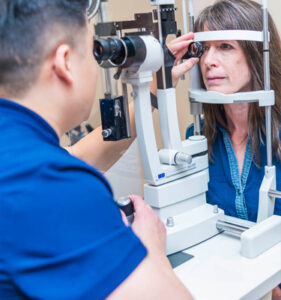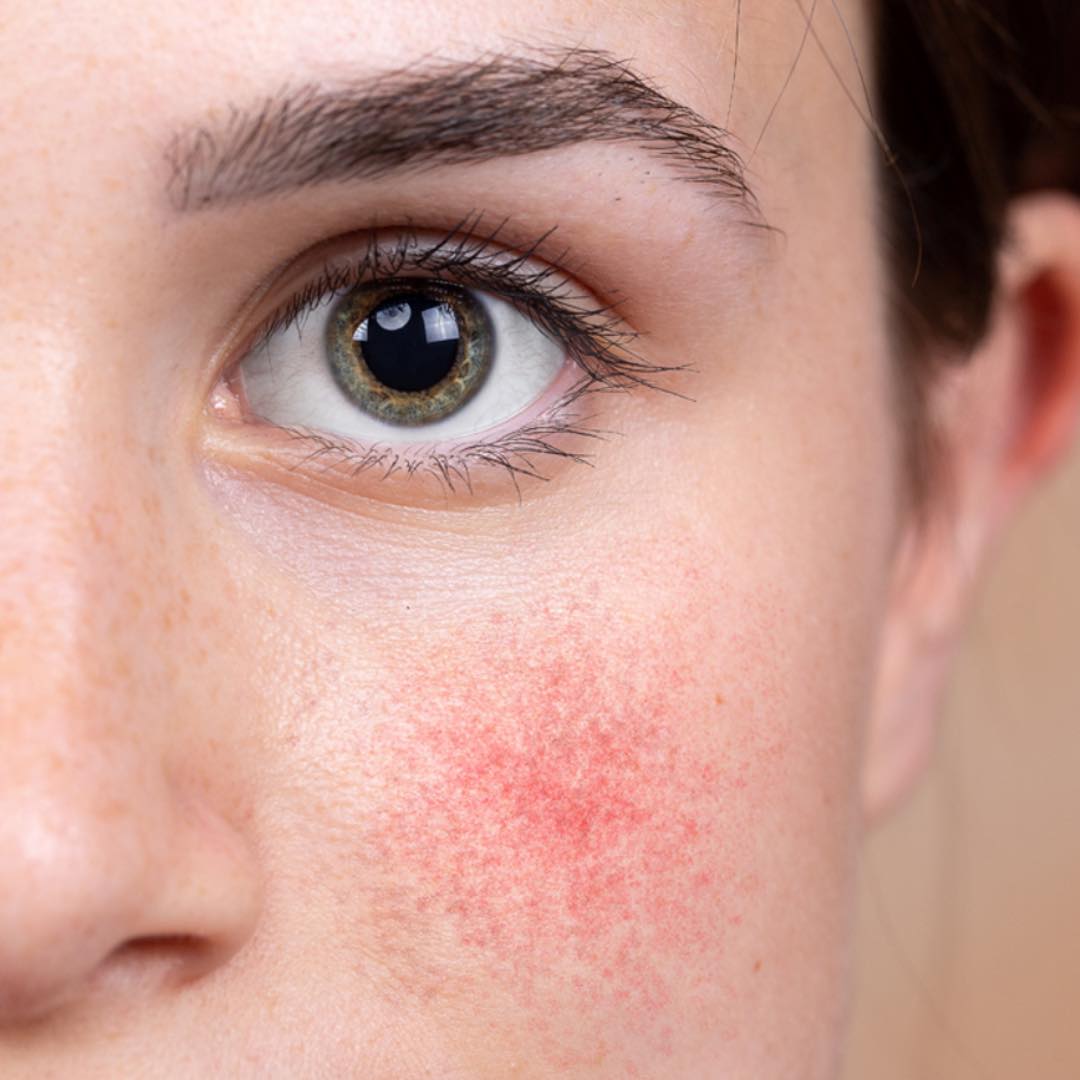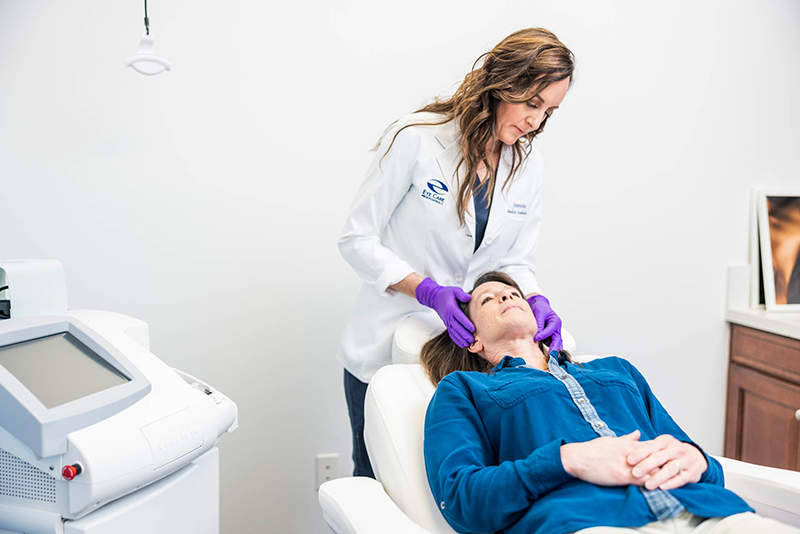NORTHERN NEVADA’S
DRY EYE AND BLEPHARITIS SURGERY
State-of-the-art medical and surgical care for the eyes
CONDITIONS TREATED
Ocular Surface Disease
The outer layers of the eye are the conjunctiva and the cornea. The conjunctiva covers the white part of the eye. The cornea covers the colored iris and black pupil.
A delicate epithelium safeguards these layers. Ocular surface disease happens when this protective layer gets damaged, which can result from various eye medical conditions. The two most common ones are Blepharitis and Dry Eye Syndrome.
When the epithelium is compromised, it may cause pain, redness, impaired vision, and potentially permanent injury to the cornea or conjunctiva. The treatment for ocular surface disease depends on the underlying cause. At Eye Care Professionals, we specialize in diagnosing and treating these diseases to help you maintain optimal eye health. Get in touch with our Reno eye experts to know more!

Blepharitis
Blepharitis is a condition that primarily impacts the eyelids and eyelash follicles, often triggered by factors such as bacteria, allergies, or dry eyes. This leads to inflammation, redness, and scaling of the eyelids, causing discomfort.
Blepharitis has two types. The first type is anterior, which affects the front of the eyelids and lashes. The second type is posterior, which affects the edge of the eyelids and the Meibomian glands. However, it is important to note that many eyes can have both forms simultaneously.
Symptoms of Blepharitis Include:
- Redness, swelling, and crusting of the eyelids
- Itchy eyelids
- Burning or stinging sensation in the eyes
- Sensitivity to light
- Tearing
- Loss of eyelashes
Why Do I Have Blepharitis?
There are a number of reasons why you might have blepharitis. The most common causes include:
- Bacterial infection: Blepharitis can be caused by bacteria that live on the skin and eyelashes.
- Demodex mites: Demodex mites are tiny mites that live in the hair follicles of the eyelashes. They can cause blepharitis when they multiply too much.
- Seborrheic dermatitis: Seborrheic dermatitis is a common skin condition that causes dandruff and oily skin. It can also cause blepharitis.
- Rosacea: Rosacea is a chronic skin condition that causes redness and inflammation of the face. It can also cause blepharitis.
- Allergic reactions: Allergic reactions to eye makeup, contact lens solution, or other allergens can cause blepharitis.
- Dry eye: Dry eye can also cause blepharitis.
Blepharitis Surgery and Other Treatments
Most cases of blepharitis can be treated with non-surgical methods like warm compresses, eyelid scrubs, antibiotic ointments or eye drops, and oral antibiotics. However, in severe cases, surgical intervention of our blepharitis doctors may be necessary. Get in touch with our Reno eye experts today.

Dry Eye Syndrome
Dry eye is a common condition, affecting at least 6.8 percent of the U.S. adult population. If you’ve been experiencing dry, scratchy eyes lately, you might be one of them. The underlying cause of dry eye is a disruption in the balance of tears.
Tears typically consist of three layers: oil, water, and mucus. Dry eye happens when tears don’t have enough water, so they evaporate fast or don’t cover the eye’s surface evenly.
Symptoms of Dry Eye Include:
- A stinging, scratchy, or burning sensation in your eyes.
- Feeling like something is stuck inside your eyes.
- Excess watering, or tearing.
- Blurred vision.
- Difficulty wearing contact lenses.
- Increased sensitivity to light.
- Eye redness.
These symptoms can vary from person to person and don’t necessarily predict the presence and severity of dry eye disease. If you’re experiencing any of these symptoms, it’s important to talk to your ophthalmologist in Reno.
So Why Are My Eyes Dry?
Healthy eyes are constantly producing tears to keep themselves lubricated. When eyes fail to produce these tears – or produce the wrong kind of tears – dry eye symptoms can arise. There are multiple factors that can result in dry eyes, such as:
- Aging: Tear production decreases with age, leading to symptoms of dry eye. Menopause can also contribute to the condition.
- Tear quality: Dry eye disease often involves difficulties in producing the water layer of tears, causing rapid evaporation or uneven spread over the cornea.
- Medications: Certain medications, such as antihistamines, decongestants, oral contraceptives, blood pressure medications, and antidepressants, can reduce tear production.
- Environment: Factors like heaters, air conditioning units, smoke, and prolonged computer use can lead to quick evaporation of tears and dry eye symptoms.
- Other diseases or disorders: Illnesses like rheumatoid arthritis, diabetes, and thyroid conditions can affect tear production.
Dry Eye Surgery and Other Treatments
Dry eye disease is typically chronic, with symptoms that come and go over time. Treatment for dry eyes includes artificial tears, prescription eye medications, and in-office procedures. Lifestyle changes – for instance, reducing the amount of time you spend on the computer – can also help reduce the discomfort of dry eyes.
Our Reno eye experts typically recommend dry eye surgery for severe cases of dry eye that haven’t responded to other treatments. It can involve procedures like punctal occlusion and meibomian gland surgery.
Punctal occlusion and meibomian gland surgery are two procedures used in eye care. Punctal occlusion involves blocking tear ducts to retain tears, while meibomian gland surgery targets glands responsible for oil production to prevent tear evaporation.
Our Reno eye experts will perform the latest treatments for dry eye syndrome. Such as punctal plugs, cauterization, Lipiflow, and meibomian gland expression to address these eye medical conditions. We also prescribe TRYPTYR, which is a prescription eye drop for dry eye treatment that works to stimulate the production of natural tears for a more long lasting dry eye solution.
At Eye Care Professionals we offer different treatments for dry eyes, such as Lipiflow surgery or advanced prescription drops for dry eye. Your doctor will provide a detailed eye exam to look for other possible conditions. For more information about how we can help your eye health, contact our Reno eye experts today.







